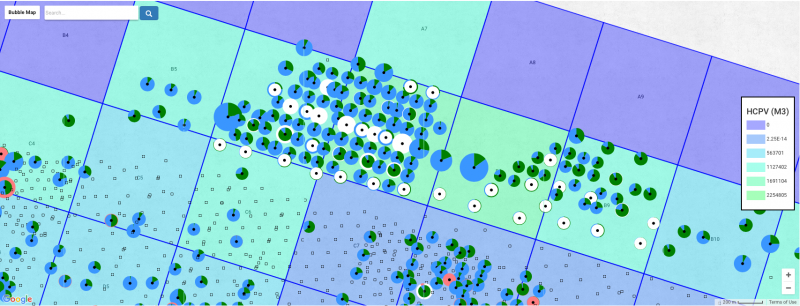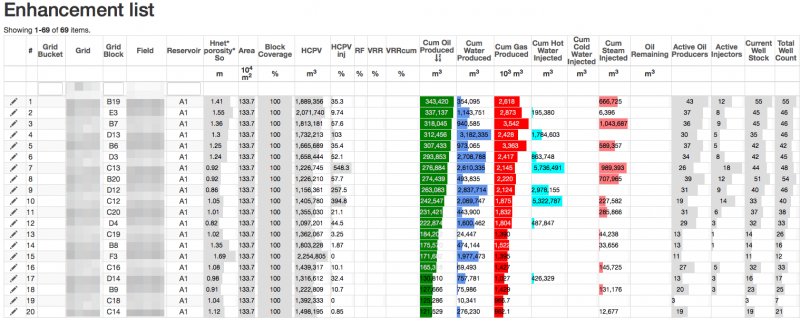Difference between revisions of "Mature Water Flood Analysis"
From wiki.pengtools.com
| Line 13: | Line 13: | ||
#Upload the required data (see below) | #Upload the required data (see below) | ||
#Check production/injection by [[Completion]]s, define [[Reservoirs]] and [[Object]]s for analysis | #Check production/injection by [[Completion]]s, define [[Reservoirs]] and [[Object]]s for analysis | ||
| − | #Gridding - Divide the field into patterns/blocks/buckets | + | #Gridding - Divide the field into patterns/blocks/buckets |
#Calculate STOIIP for each reservoir using blocks | #Calculate STOIIP for each reservoir using blocks | ||
#Match STOIIP to official numbers by changing the edge blocks areas | #Match STOIIP to official numbers by changing the edge blocks areas | ||
Revision as of 13:34, 31 January 2017
Contents
Mature Water Flood Analysis (MWFA)
Mature Water Flood Analysis is a workflow for identifying the performance gaps in the mature waterfloods performance.
As a result Mature Water Flood Analysis generates Blocks/Patterns Enhancement List.
Workflow
- Upload the required data (see below)
- Check production/injection by Completions, define Reservoirs and Objects for analysis
- Gridding - Divide the field into patterns/blocks/buckets
- Calculate STOIIP for each reservoir using blocks
- Match STOIIP to official numbers by changing the edge blocks areas
- Make Plots (by field, by reservoir, by block):History, RF vs HCPVinj, RF vs well spacing, WOR vs Np, VRR vs t
- Make Maps (by reservoir) showing Blocks: HCPV, HCPVinj, RF, VRR
- Calculate Blocks Enhancement List
- Draw conclusions
1. Data Upload
- Create Fields
- Upload Wells
- Upload Deviation Surveys
- Upload Perforations
- Upload Well Log Interpretions
- Upload Reservoirs
- Upload PVT
- Upload Monthly Measures
2. Completions Check
- Look through the Completions with commingled Reservoirs production
- Decide whether the commingled Reservoirs should be groped as Objects for the further analysis or treated individually.
This check is valuable when production allocation between the reservoirs is an issue.
References
Wolcott, D. ; Applied Waterflood Field Development, Energy Tribune Publishing Inc., 2009.


